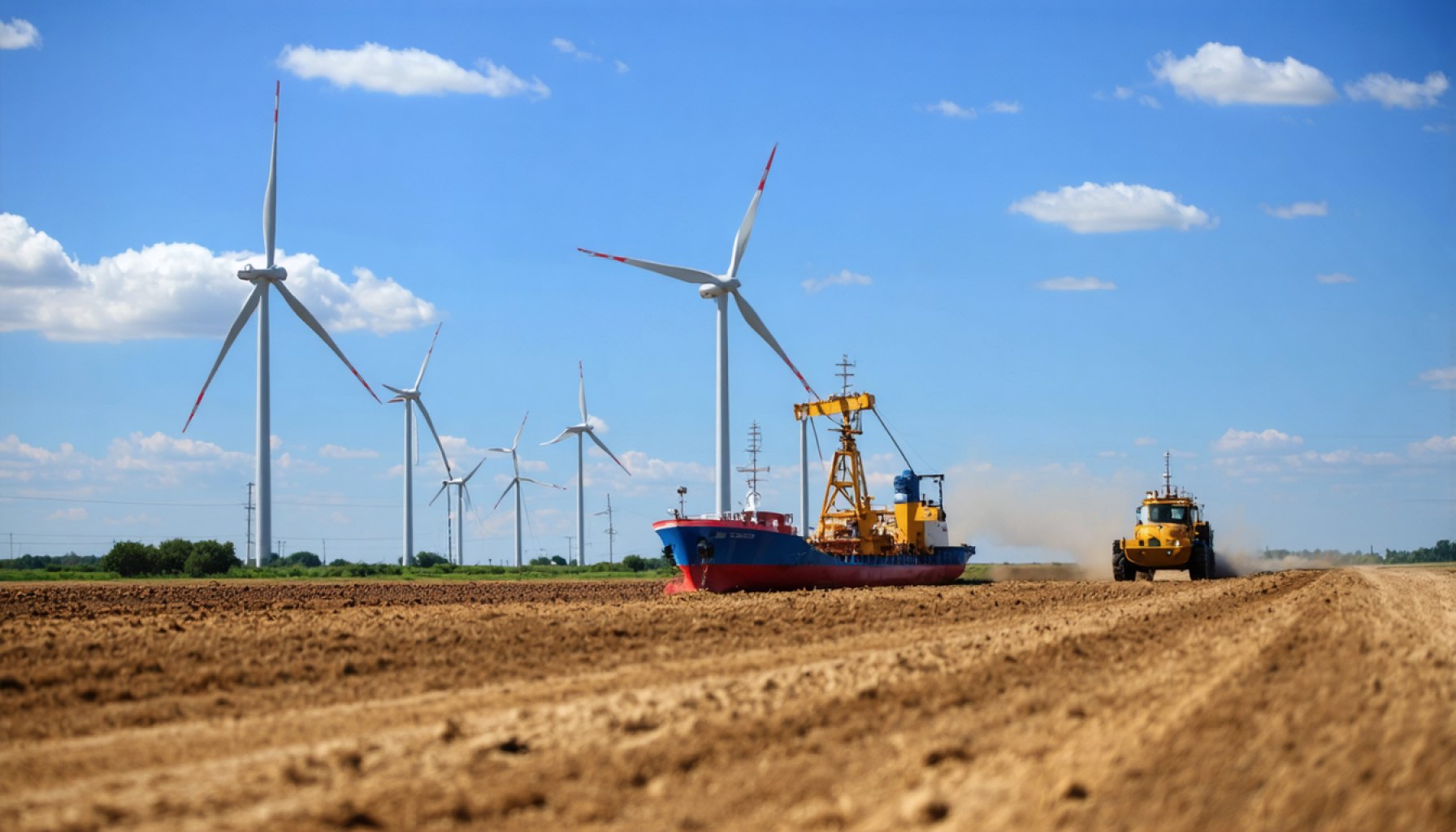- Renewable energy companies, like ACEN Corp., remain committed amidst a global resurgence in fossil fuels.
- Leaders such as Eric Francia exemplify determination to maintain course despite financial challenges.
- Energy giants like BP are shifting back to fossil fuels with major investments, such as a $25-billion project in Iraq.
- ACEN aims to expand its renewable capacity from 7 gigawatts in 2024 to 20 gigawatts by 2030.
- The pursuit of sustainability is driven by scientific consensus and the necessity for a low-carbon future.
- Clean energy’s quiet persistence offers hope as a guiding force through current energy policy shifts.
Under the thick haze of fossil fuel resurgence, a silent yet potent battleground is emerging. Across the globe, companies committed to renewable energy are holding their ground, defying the gravitational pull back to carbon-heavy resources. Spearheading this steadfast resolve is ACEN Corp., where visionary leadership shines through uncertainty.
Amidst the echoes of “drill, baby, drill” reverberating in American policy—fueled by rhetoric that champions oil and gas—clean energy advocates are maneuvering through turbulent financial waters. The deliberate actions of leaders like Eric Francia, ACEN’s president and CEO, epitomize a determined sector coping with market fluctuations. The stock prices of renewables may have waned under the weight of fossil fuel appeal, but industry pioneers remain undeterred, eyes firmly set on a greener horizon.
As air thickens with the fumes of policy shifts towards conventional energy sources, major players such as BP have adjusted their compasses. This energy giant recently embarked on a $25-billion venture to revive Iraq’s oil and gas sectors—a stark contrast to its earlier green pledges. Such moves, while bolstering short-term gains in fossil fuel markets, overshadow the long-term imperative of a sustainable transition.
The scene across renewable fronts isn’t devoid of hope. Francia’s calm assertion that the faith-driven shift to renewables is akin to a “quiet revolution” adds a glimmer of optimism. Despite external economic pressures and vocal adversaries, ACEN and allies press on. Their mission? To expand from an impressive 7 gigawatts of renewable capacity in 2024 to a commanding 20 gigawatts by the close of the decade.
This defiance is not merely symbolic. It embodies a concrete belief in sustainability and the inevitable march toward a low-carbon future. The scientific consensus remains unchanged, and the impetus to transition is not just a choice—it is a necessity. The resolve of these industry stalwarts resonates in their strategy: allow actions, grounded in unyielding science, to lead the conversation.
In a world oscillating between competing energy paradigms, the quiet fervor of renewables may be the beacon that guides us through the storm. And as long as science points the way, the chance for clean energy to finally reign paramount brightens with each new megawatt deployed.
Renewable Energy: The Silent Revolution Behind the Carbon Curtain
Navigating the Turbulent Energy Landscape
The resurgence of fossil fuels, underscored by massive investments and policy shifts, has created a complex and challenging environment for renewable energy companies. Yet, amidst this backdrop, there are crucial developments and perspectives that often go unnoticed.
The Steadfast Determination of ACEN Corp.
ACEN Corp. exemplifies the resilience found among renewable energy companies. Under the leadership of Eric Francia, ACEN is on a mission to significantly enhance its renewable energy capacity, aiming for a future less dependent on fossil fuels. Their target of increasing from 7 gigawatts in 2024 to 20 gigawatts by 2030 underscores a strategic long-term vision fueled by science and sustainability [ACEN Corp.].
How-To: Treading the Path Towards Sustainability
For individuals and businesses looking to shift towards renewable energy, consider these actionable steps:
1. Conduct an Energy Audit: Assess your current energy usage and identify areas for improvement.
2. Invest in Solar Panels: A sustainable energy source that can reduce dependence on the grid and lower electricity bills.
3. Opt for Energy-Efficient Appliances: Choose appliances with high efficiency ratings to consume less energy.
4. Educate and Advocate: Stay informed about renewable energy advancements and advocate for policies that support sustainable practices.
Real-World Use Cases: Transition to Renewables
Countries like Germany and Denmark have successfully transitioned significant portions of their energy supply to renewables. In Denmark, wind energy alone covers about 47% of the national electricity consumption.
Market Forecasts & Industry Trends
The International Energy Agency (IEA) predicts that global renewable electricity capacity will increase by 60% from 2020 to 2025, driven by solar and wind energy advancements. The trend indicates growing investment and technological innovation, making renewables more competitive.
Controversies & Limitations
Despite the optimism, challenges exist. Renewable resources can be intermittent, and energy storage technology is still evolving. Critics argue that without sufficient storage solutions, the reliability of renewable energy remains questionable.
Security & Sustainability
Renewable energy reduces reliance on fossil fuels, which often come from geopolitically unstable regions. Sustainable energy sources offer more stable and predictable supply chains, decreasing the risk associated with fossil fuel dependency.
Insights & Predictions
As climate change advocacy grows, political and economic pressures may shift, leading to increased support for green energy initiatives. With continued innovation, renewables are likely to play an increasingly significant role in global energy mixes.
Pros & Cons Overview
Pros:
– Significant environmental benefits and reduced carbon footprint.
– Increasingly cost-effective with advancements in technology.
– Added energy security and reduced geopolitical risks.
Cons:
– High initial costs and investment requirements.
– Intermittent energy supply necessitates reliable storage solutions.
Actionable Recommendations
– Stay Informed: Regularly follow developments in renewable technologies and policies.
– Invest in Renewable Solutions: Consider adding renewable energy projects to your investment portfolio.
– Advocate for Green Policies: Support initiatives that promote sustainability and energy efficiency in your community.
In conclusion, while fossil fuels still dominate the global energy landscape, the quiet yet determined push for renewables signals a paradigm shift that’s impossible to ignore. For further insights and information on renewable energy advancements, visit the International Renewable Energy Agency (IRENA).
